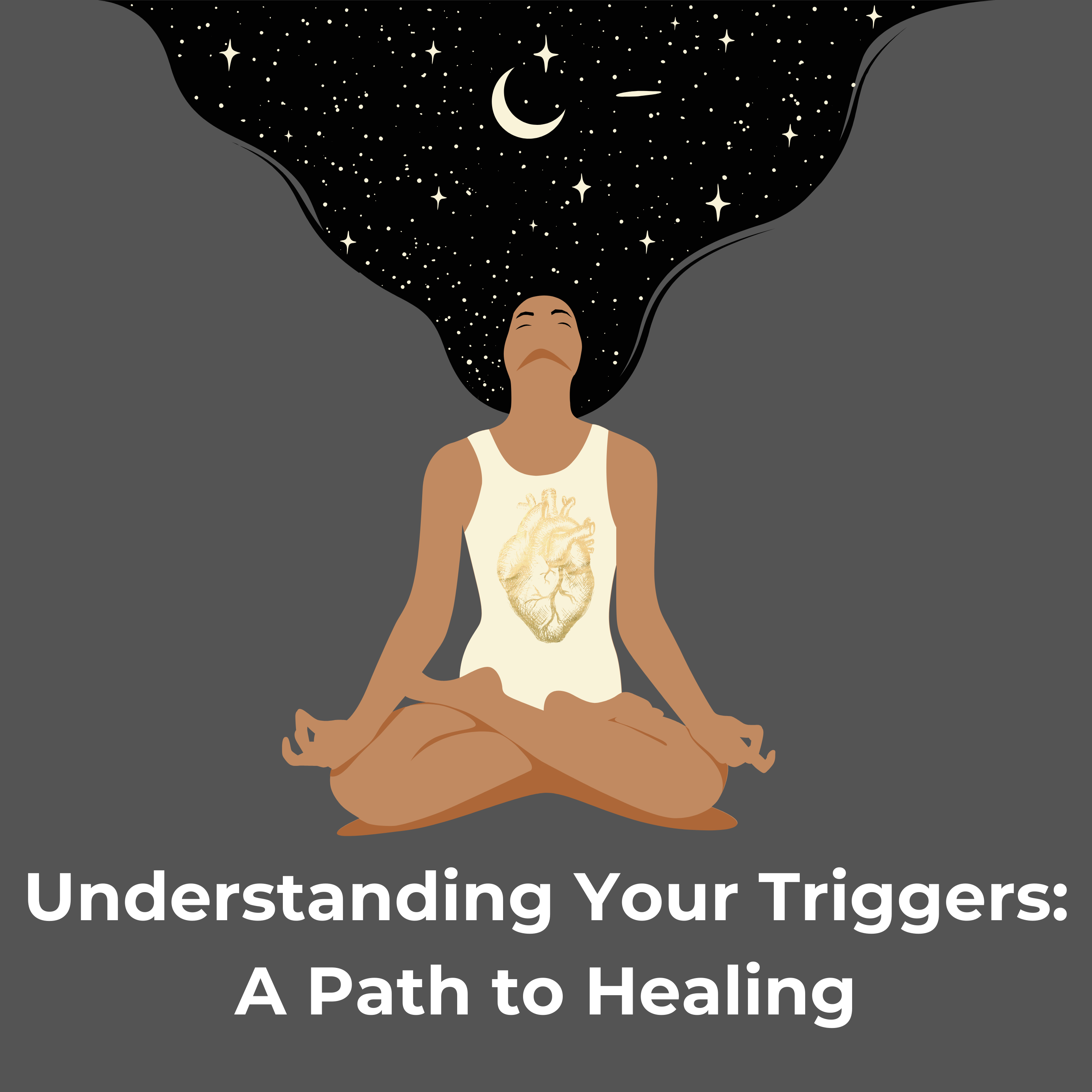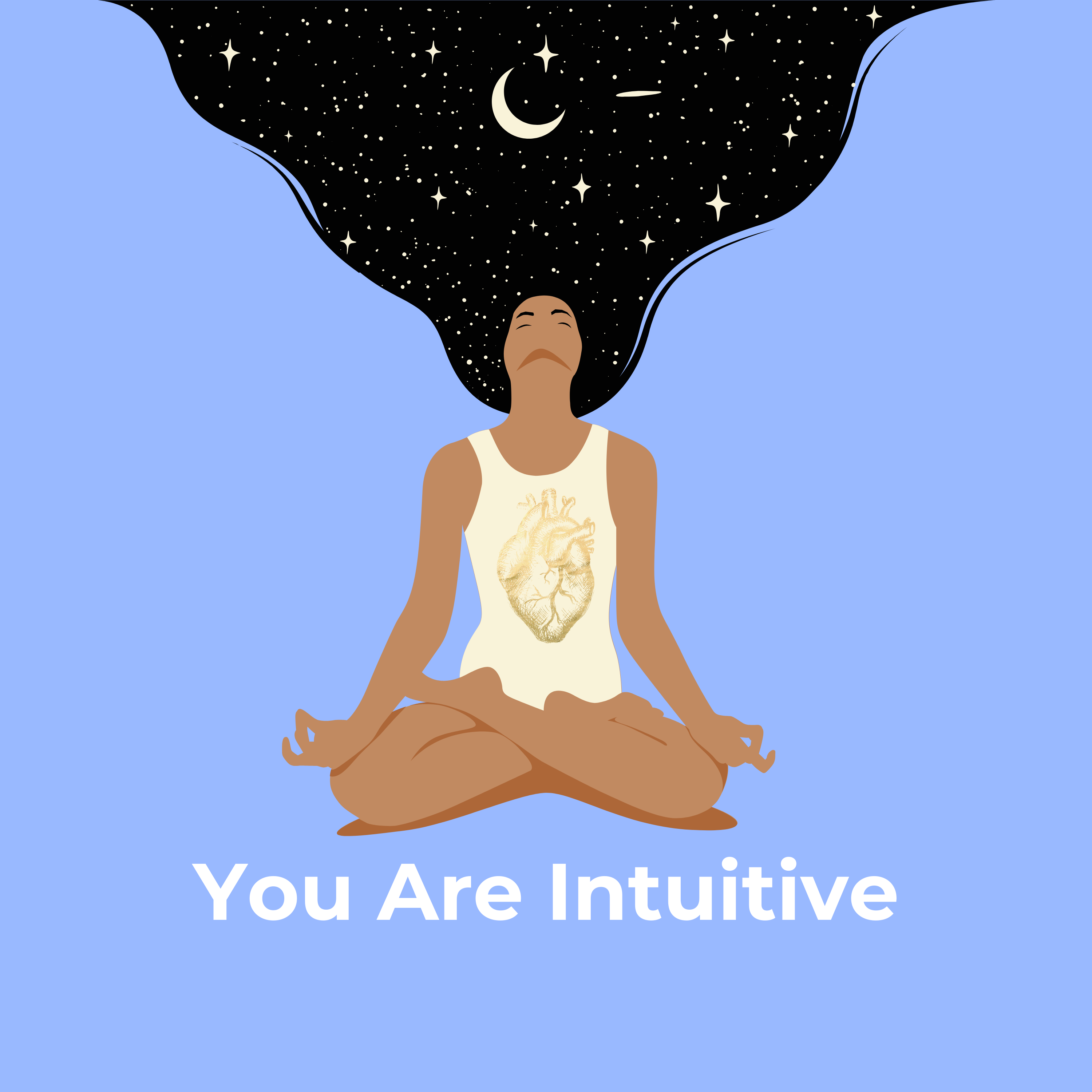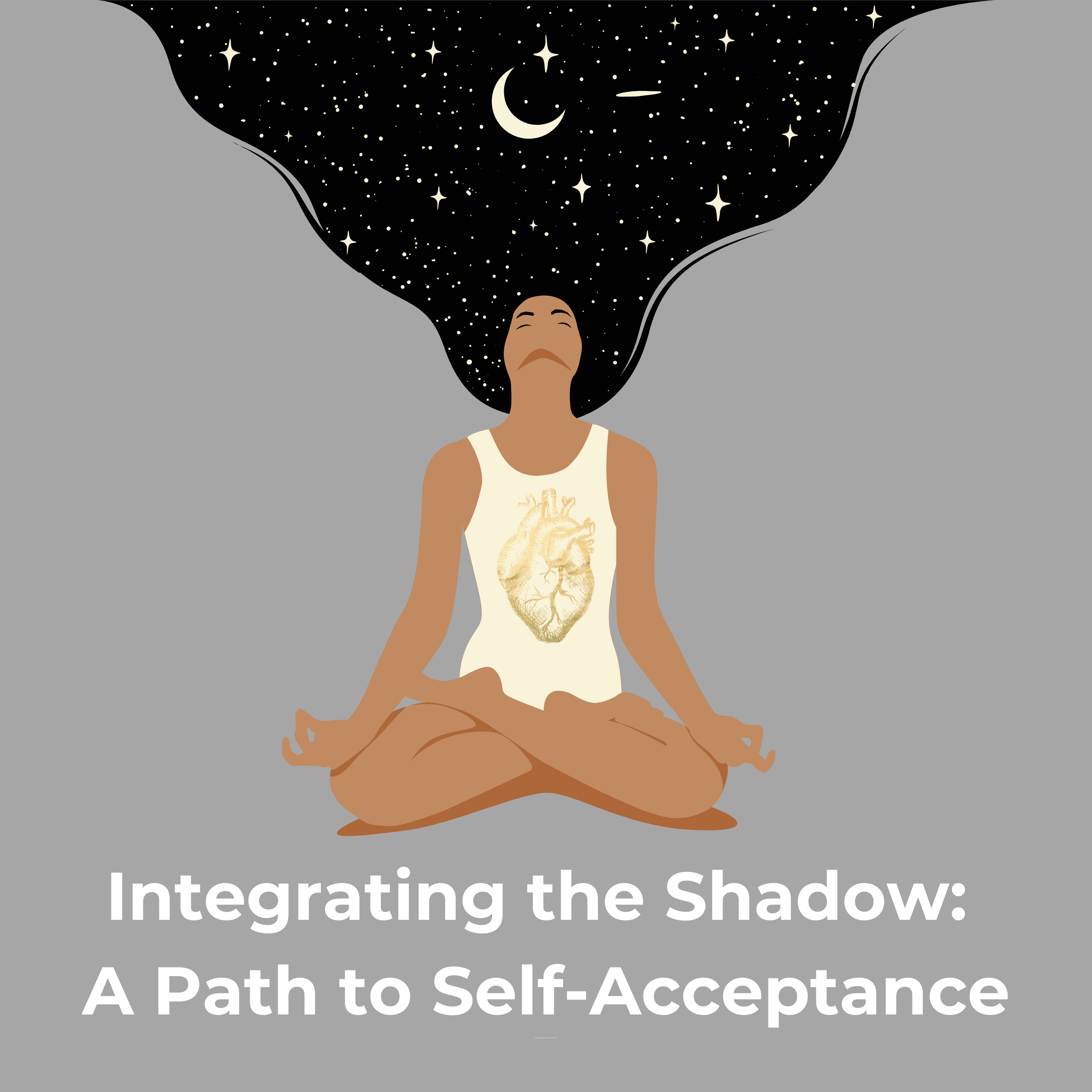Episode Transcript
[00:00:00] Speaker A: The world of healing can be treacherous. But suddenly Spiritual aims to provide real, honest, practical spiritual knowledge and wisdom for the true seekers among us.
The goal is to ignite the divine human within each listener, raising the collective consciousness for our planet. We will challenge your preconceptions, push your buttons, and encourage deep reflect. We're not here to adhere to the status quo of what the new age spiritual market wants you to buy into and believe.
Consider this your antidote to the woo woo and a place of woo. You.
It's funny looking back on when I would get triggered and lash out. And like I mentioned earlier, it's like it's a different person, it's not me.
But then, you know, you feel better because you get rid of that emotion. But then it's not gone.
And then it just keeps happening over and over again. And you know, there was a point where I would get triggered and I would be like, okay, I'm sick of this happening over and over again.
Now I need to work on getting rid of it as much as you can and finding out why it's still there. Yes. And like I said, upon reflection and doing that. And now somebody's late. It's funny, my first thought is, nothing negative. I'm not insecure. It's genuinely okay, I'm glad they got here safe. And usually there'll be a story, right? Oh, this happened, this happened, this happened. Cool. You didn't owe me an explanation, but that's cool.
Let's get on with it. And it's funny when you talk about the subconscious and I recognize it, I wouldn't have labeled it as shadow. For me, I'm. And again, it's a label, but we're talking about the same thing. The way I would. I would be looking at this would be unresolved emotions, whatever they were, and then knowing that they're packed down so back to the subconscious, so recognizing they're there. And then the more you pack it down, the more it grows, it gets more energy. So it just, it's looking for a path to like burst through. And that's what I find happens. And also when somebody's coming at me with their shadow, which is manifesting in with negative energy, and then I give them negative, then it. That all multiplies.
The one tool that helps me deal with this was just lines on the road.
Just let it go by. I'm like, yeah, how many times, how many cars have I driven in where those lines just go right by? I'm not attached to any of the lines in sort Of a.
A way where I can just use it to be better with myself is just. It's not my problem.
And it's not me being less of a human. It's me realizing that in society, we've been taught the word selfish is a bad word.
[00:03:45] Speaker B: Yes.
[00:03:46] Speaker A: But I'm embracing that for me, for my health, for my mental well being, for just my humanness. And, you know, people will say different things, and I'll just be like, yeah, that's literally not my problem.
And with my shadow, and there's been a lot of issues. And here's the thing. I'm very. I'll wrap up here. I'm very cautious to say done. Okay, that one popped up. Okay, that one's done. That one popped up. That one's done. Because every time I think that, okay, that's gone, I'll get triggered again. Someone will be late. But on a scale 1 to 10, before the energy was 10, even if it's 1, I'd be like, okay. But now it's like 0.9.
So it comes up, but I'm like, oh, that thing's still there. I thought it. I dealt with it. How come it's still there?
[00:04:52] Speaker B: It's like whack a mole. Sometimes I think in the beginning it's whack a mole where you think you. You got rid of it. And then another thing pops up that's similar.
And it's a process. And I think what you were saying before, actually, I wanted to touch on that, was time. In addiction recovery, there's that cycle of people being triggered. Then they start, you know, calling friends for whatever addictive substance they're looking for. There's a specific quality to how they move, where they go. It becomes very ritualistic. The. The cycle of addiction.
And what a lot of recovery programs talk about is breaking the pattern. With time, you have the trigger rather than the reactivity. The. And I feel like the reactivity and the activation when it comes to shadow, your shadow coming up, it is an addictive pattern. You have an addictive pattern around how you respond to other people. Because typically people bring up the shadow within others. As you were saying, if you lived in isolation, would you really be triggered? Probably not. If you lived in nature somewhere, probably not. It's other people that bring that within us or without so that we can deal with it. And so if you can see it and slow down time by being more present, seeing and feeling, actually feeling what's going on rather than jumping, and it could be tricky if you are hardwired because our families hardwire usually for certain response patterns because of the trauma that we've, we've had within our lives.
This is how we respond to when people are late. We yell at them. This is how we, I'm literally, this is the way everything is. We yell at them. In my family, it was, it's always been like, if someone didn't do something you, you know, you didn't want, you did, they did something you didn't want them to do, you yell at them.
If they didn't do it in the way that you wanted them to do, do it, you yell at them. So rather than yelling, straight yelling, like even step back, like physically from that person, say someone is yelling at you or is very triggered by you taking a deep breath and stepping one step back or even two step back, steps back from that person.
And in nature, when human beings don't see other human beings hands, it's this primal trigger that they're unsafe because you don't know what's in their hands. So you can have a rocket in your hand and you can hit me. So if you have your hands in your pocket, if your arms are crossed, have more of a neutral body positioning so people can see your hands.
When you're in an angry situation or a triggering situation.
If you're wearing sunglasses or anything that would obstruct your eyes, take those off.
Because again, it's a sign to our brains that this person is going to hurt me and something is going on and I need to see their eyes, I need to see their hands. So these are very, these are hardwired from an evolutionary standpoint. So taking time, stepping back, taking a beat, taking a breath, and then letting that settle, you can easily.
What you just said is bringing up things in me. You don't have to use the word trigger.
It's bringing up things in me. And I just need a minute. Can I please have a minute? Because I want to say something to you without regretting what I'm going to say. I just want to take a minute. And most people are very respectful of that.
And if they aren't, then you need to get out of the situation completely. You really do. If someone's like, no, I'm not going to give you a minute, don't engage like, don't engage back to like non attachment, you need to disengage, you need to detach from that situation. If someone is being hyper aggressive.
[00:09:29] Speaker A: So for those listening that are that this is new to them as far as the concept, I think to A person, they've experienced it. But as far as identifying it as a concept and reflecting on it, what's some homework, for lack of a better word, they could do what I love.
[00:09:55] Speaker B: Doing, believe it or not. Especially when I'm having challenges, like consistently being challenged in my life.
I'll wake up in the morning and I have a notebook, just a plain notebook. And the first thing I'll do, I'll do my morning routine and then I'll sit and I'll write the things that I potentially think will. Will trigger me Today could be very brief.
[00:10:22] Speaker A: Let me interrupt you there. Aren't you potentially making those things happen if you do that?
No. You're not manifesting them.
[00:10:32] Speaker B: I don't think you're manifesting them. Okay. Especially if you're writing it in the hey, I know I have a meeting with Sean and he's going to be late or I think he's going to be late. This might trigger me. I write it down, hey, I need to talk to my mom on the phone. I need to call her about Christmas or something.
Christmas is triggering for me. True story.
I'm going to write it down.
And the consist. It basically primes your brain to be like, hey, these are the things that potentially may trigger you and you have some shadow stuff around.
It's not going to be a surprise. And many times half of the things I write don't even happen.
Or if they do happen, the magnitude of them is greatly reduced. Because I'm not, I'm not off guard because I didn't, because I didn't say, well, Sean was going to be late. And I wrote that in my trigger journal and he was late. I'm not shocked about it. It's like, well, yeah, I knew that that was potentially what was going to happen.
So help yourself out. You're not manifesting it because you're not dwelling on that thing with intense focus for it to happen. You're not like willing Sean to be late, but you're just giving yourself some grace and some.
You're cutting yourself some slack. Like, I know I'm triggered by this.
I'm working on it.
Have some self compassion.
Really? I think this podcast should also be called have Some Self Compassion because so much of this, like, we need to treat ourselves like children, like little three year olds and give ourselves some compassion and grace. Because a lot of us, I could speak for myself, but a lot of the people I've met in my life, there's a lack of compassion for self and empathy for self.
[00:12:33] Speaker A: Yeah, it's it's interesting you mentioned that about the three year old or the five year old or whatever it is, because, you know, as I reflect upon my life and where I am now, and for me, things physically manifest as far as working on shadow, getting healthier, getting back to where I need to be physically, mentally. Because for me, when I say manifest, when all this stuff comes up and I see it as it comes up, I gain weight because I'm trying to protect myself emotionally from all this stuff coming up, then as I deal with it, I get healthier and the weight goes away because it's, it's gone. And I'm doing all that. And it's funny, no matter how much I would work out and go crazy and I would lose weight and I would look good, would always come back and be like, okay, well no, it's your habits, it's your diet, it's whatever. Yeah, but that's based on, as I reflect the shadow as far as this thing made me feel this way, so this food will counteract that. But I would be looking back and going, you know, there was a point where I was a happy kid and everything was great. And then it was like, this happened, then this happened, then this happened, then this. And all this stuff gets piled on over decades and now I'm at the point where I'm unpiling one by one and trying to get back to that five year old kid and I get glimpses of it. But then like I mentioned earlier, I'm like, I thought I dealt with this, but what I realized is, okay, I may have dealt with the first one where you don't respect me, I'm insecure, you're late, okay, but then because of that one, another one happened after that. So even though I think I got rid of the OG one, the culprit one, the peripheral ones, I still have to. And it's the onion. Continuous onion, right?
Layers upon layers.
[00:14:57] Speaker B: I have a question for you, Sean. I really want to ask you this because you, you basically opened up such a huge inner topic within this topic.
When you gain weight from a protective standpoint, which many people do, including myself, and when you start to lose the weight or release the weight, does emotionally, do those triggers start to come up that brought the weight on? Do they start to come to the surface? Has that been your experience where as you start to release the weight, then those emotional things that were, you were blocking or that you were trying to hide or get away from, do those start pushing themselves forward?
[00:15:51] Speaker A: This happened to me yesterday, that's why I was smiling as you said that.
So to answer your question before I give you the story. Yes, but not subtly and not the way it would normally be.
It's 10x, it's a hundredx.
So I'm not going to name names, but yesterday I went to.
Well, actually, this will name names, but it won't. Doesn't matter.
So I went to the studio yesterday and usually I'll book it from 12 noon, that's the time. And I usually try and get there at 11:30 to set up for the client.
So I got there at 11:30 and the owner wasn't there.
And sometimes he'll come at quarter two. Usually he's there, or if he has a booking before and I was waiting, I'm like, okay. And then like 10 minutes before, I'm like, okay, this is getting close. Let me just text him. And then he just sent me back, question mark. He's like, I don't have you booked for the studio.
I'm like, no, no, no, we. We did this. And usually I'll text him or email, but this time when I was finishing the other session, we just confirmed in real, real life.
And he said a couple things and he's like, yeah, it's good. Done. And I put it in my calendar right away.
And then he's like, okay, because they're repairing something in the studio, they're doing the transformer, the whole day's booked out, nobody's in, blah, blah, blah.
And about half an hour before this, the client that was coming, who's supposed to be there at noon because we're starting at noon, she was like, oh, I forgot this thing. I had to turn around. I'm running late.
So she was running late. It's not like the studio owner was running late.
The ante got up. It's like he didn't even acknowledge I existed because I wasn't even on the schedule. Like, I'm not even. I don't even exist. It's like, you're nothing internally, right?
And to answer your question, it comes up, but I'm finding it comes up like 10x, 100x. So here's what happened to me internally while this was happening.
So the client called me and said, I'm running late. I'm like, I had no reaction, like, nothing. I'm like, okay, again, lines in the road. Thank you, Michael Singer.
So she called, she's like, oh, we have to turn around. I had to do this. We were coming back. Sorry. I'm like, cool.
And then you know, 10 minutes.
And then I messaged him. He's like, oh, I don't have you. Blah, blah, blah, blah. I go, really? And then without me prompting, he's like, I'll be there because he lives 10 minutes away. He goes, I'm on the way. But I didn't have any reaction when he meant it. Like, there was not no trigger.
Again, very hesitant to say it's completely dealt with. But this was, like, yesterday. And I went. I didn't even think about it as a situation to pat myself on the back and go, I didn't get triggered. It's just, we're talking about this now. Now I'm kind of happy and proud, I guess, but I'm very weary to say it's gone.
It's like the universe is going, oh, yeah, well, you can deal with a five.
Here's not a ten, here's a hundred. What are you gonna do? And now I'm looking back, I'm like, yeah, I had zero reaction to that at all.
I was like, okay, now the old me would have been like, who does this person think I am? As far as the client first doing that? And then as far as the me not even being scheduled when I know I am, it's like, doesn't he know who I am? Like, I know exactly what the dialogue would have been.
But it didn't.
It was. It didn't come up again. I have to be very weary and saying, those are dealt with because it'll come up again.
But, man, I'm kind of proud of my re. Non reaction. Like, even after it happened, I wasn't patting my. I'm only in reflection now, a day later, when you ask me that, I'm like, yeah, I genuinely had zero reaction. And that. That. That is late to. To the 10x for all happening within a half an hour of each other.
So, yeah, it comes up.
[00:20:57] Speaker B: It's so interesting because before, you guys can't see us, but before we started recording the podcast, I looked at Sean and I'm like, sean, you look different. And he, like, Sean is a handsome man, but he. He looked somehow like something had changed. And I couldn't put my finger on it. And he's like, yeah, it's called shadow work.
I'm doing shadow work. And that's why, like, he just seemed lighter. Like, his presence seemed lighter. And of course, it's going to reflect, like, what we do internally, the work that we do internally. And I think, Sean, you should be proud of yourself. It's going to reflect in how we physically appear in the world like our bodies are going to respond.
There is an absolutely fantastic physician.
Amazing man. His name is Dr. Gabor Mate. He specifically talks about trauma. He is wise, beyond wise. And he talks a lot about addiction as well.
[00:22:01] Speaker A: Oh, those Canadians are.
[00:22:02] Speaker B: He's a Canadian. Yes, yes, Sean, he's a Canadian. And he has a whole way of looking at things called compassionate inquiry. So if you have, you know, trauma.
Well, basically everyone.
His books are wonderful. He has a lot of content on YouTube about compassionate inquiry. I really recommend finding his work. Also, there's another great book. It's called Existential Kink, which I have here. It's by Carolyn Elliot, PhD. She talks about how the things that we believe.
She comes from it from a. Like a. More of a hermetic alchemical perspective.
She talks about what we believe are things that we don't want in our lives. We get a very distinct pleasure from them, and that's why we keep them in our lives.
So, yeah, so it talks about where you. For lack of a better word, like where you get off, where you have. There's a kink there.
Let me. Before I say what I'm gonna say, I need to preface her work specifically. If you are clinically depressed, if you are in a space where you're dealing with very deep trauma, her work is not for you. And she even says it. This is. This is. You need to have some. There needs to be a little bit of self esteem. There needs to be a little bit of light going on for you to do her work. So if you're clinically depressed or if there's very severe trauma, this is not a book for you yet.
But once you start working with the depression, with the trauma, then eventually this can be a book for you.
And again, she says that also in her book multiple times. And I can understand it makes sense. But where are you finding some sort of pleasure from the things that you think that you don't want that keep showing up in your life?
There's some sort of fascination. You get something out of it. Some sort of pleasure is derived from things that you say you don't want. So whether it's. Let me give you an example. It's like she gives the example where, you know, she was a PhD student or she was. She had graduated with her PhD, and, you know, she was a very smart woman, yet she was on government assistance.
And so she was in the line to go to a food bank.
And she talks about how.
Where do I. What. What about this? Am I being. Getting off on not being able to provide for myself. Like, what is it about me? Where do I find pleasure in that? Pleasure? Is it the pleasure of being taken care of by someone else or some other entity? Like, is it that? Is it that I'm, you know, sticking it to corporations because I'm not part of their game? Like, what is it? So it's a really interesting book. It is very confronting work. I've done this work and I really stand by it.
So if you're interested, literally the line underneath the book's title is, unmask your shadow, embrace your power.
So it's talking about unmasking your shadow and embracing your power.
If that resonates with you, if you like that vibe. Carolyn Llewellyn, Existential kink. If there's deeper layers of trauma that you'd like to work on, Gabor mate is excellent.
[00:25:46] Speaker A: And we are by no means done with this topic.
[00:25:52] Speaker B: Not even close.
[00:25:54] Speaker A: But for now, we are. Yeah, we will continue this in the next episode, for sure. Thanks for listening, folks.
[00:26:02] Speaker B: Thank you so much.



